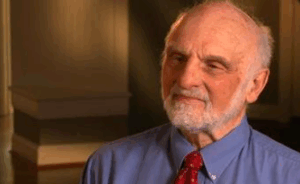
Pentecost offers a unique opportunity to delve into the enigma of the Holy Spirit, the often less understood member of the Holy Trinity. Many believers, including theologically trained individuals, find it challenging to encapsulate His essence fully.
Instead of seeking a comprehensive definition, this exploration turns to the Bible, the singular source that consistently addresses the nature of the Holy Spirit.
The Spirit at the Beginning
“Now the earth was formless and empty, darkness was over the surface of the deep, and the Spirit of God was hovering over the waters.” – Genesis 1:2
“Now the Lord is the Spirit, and where the Spirit of the Lord is, there is freedom.” – 2 Corinthians 3:17
The Holy Spirit’s presence is established from the very first passages of the Bible, illustrating His eternal existence. Unlike an impersonal force, He is fully divine and integral to God, akin to how blood sustains the body. His early role as Creator and Renewer is pivotal, bringing structure and purpose to chaos.
The Promise and Fulfilment of a Universal Outpouring
“And afterward, I will pour out my Spirit on all people. Your sons and daughters will prophesy, your old men will dream dreams, your young men will see visions. Even on my servants, both men and women, I will pour out my Spirit in those days.” – Joel 2:28–29
“And I will ask the Father, and he will give you another advocate to help you and be with you forever—the Spirit of truth. The world cannot accept him, because it neither sees him nor knows him. But you know him, for he lives with you and will be in you.” – John 14:16–17
“But you will receive power when the Holy Spirit comes on you; and you will be my witnesses in Jerusalem, and in all Judea and Samaria, and to the ends of the earth.” – Acts 1:8
“When the day of Pentecost came, they were all together in one place. Suddenly a sound like the blowing of a violent wind came from heaven and filled the whole house where they were sitting. They saw what seemed to be tongues of fire that separated and came to rest on each of them. All of them were filled with the Holy Spirit and began to speak in other tongues as the Spirit enabled them.” – Acts 2:1-4
The Old Testament records instances where the Spirit selectively empowered leaders like kings and prophets for specific tasks (1 Samuel 16:13, Isaiah 61:1; Ezekiel 2:2). Nonetheless, the Prophet Joel foresaw a future when God would bestow His Spirit upon all individuals, transcending barriers of age, gender, and status. This prophecy was later affirmed by Jesus, who promised His followers the enduring presence of the “Spirit of truth.”
Following Jesus’ Ascension, His disciples experienced this outpouring on Pentecost, marking a transformative moment when the Holy Spirit became accessible to all believers. This event signifies why Pentecost is celebrated, highlighting the start of believers’ direct engagement with the Spirit’s omnipresence and power. It was the birth of the Church and the catalyst for spreading the gospel.
The Spirit’s Work in Us
“But when he, the Spirit of truth, comes, he will guide you into all the truth. He will not speak on his own; he will speak only what he hears, and he will tell you what is yet to come.” – John 16:13
“…He saved us through the washing of rebirth and renewal by the Holy Spirit…” – Titus 3:5
“The Spirit helps us in our weakness… the Spirit himself intercedes for us through wordless groans.” – Romans 8:26-27
“These are the things God has revealed to us by His Spirit. The Spirit searches all things, even the deep things of God.” – 1 Corinthians 2:10-11
“For those who are led by the Spirit are the children of God…the Spirit you received brought about your adoption to sonship. And by him we cry, “Abba, Father.” The Spirit himself testifies with our spirit that we are God’s children.” – Romans 8:14-16
Jesus emphasized the profound and intimate relationship believers have with the Holy Spirit, who resides within them. This indwelling presence is not merely supportive but transformative. The Apostle Paul reiterates this in 1 Corinthians 6:19, emphasizing that believers’ bodies serve as temples for the Holy Spirit.
Functioning as both Creator and Renewer, the Holy Spirit continuously revitalizes believers, initiating a lifelong journey of transformation and sanctification. As believers engage with Scripture, the Spirit enlightens their minds and guards their hearts.
Serving as an Advocate, the Holy Spirit offers comfort, intercedes in prayer, and reveals divine truths, granting insights into God’s wisdom, even through prophetic experiences.
The Spirit’s Power through Us
“But the fruit of the Spirit is love, joy, peace, forbearance, kindness, goodness, faithfulness, gentleness and self-control” – Galatians 5:22-23
“There are different kinds of gifts, but the same Spirit distributes them…” – 1 Corinthians 12:4-11
The Holy Spirit empowers believers not only through miraculous signs but also through the cultivation of character. His presence is evident in qualities like love, patience, and self-control. Additionally, He generously distributes spiritual gifts, enabling believers to edify the Church through various roles such as preaching, healing, and hospitality.
The ultimate goal of the Holy Spirit’s work is to shape believers into the likeness of Christ, reflecting His glory in and through them (Romans 8:29; 2 Corinthians 3:18).
This article was originally written by www.christiantoday.com







Be First to Comment